MercoPress. South Atlantic News Agency
Agriculture
-
Wednesday, March 29th 2023 - 10:46 UTC
Boom year for Brazilian farmers with record soybean crop and drought punishing Argentine production

Brazil’s soybean output and exports in 2023 will be higher than expected, Brazilian oilseed lobby Abiove announced this week, as local farmers harvest a bumper crop. Abiove now estimates Brazil’s soy production at a record 153.6 million tons, one million more than the last projection last January.
-
Wednesday, March 29th 2023 - 10:44 UTC
Brazil leading exports depend on China: 70% of soybeans and 63% of iron ore
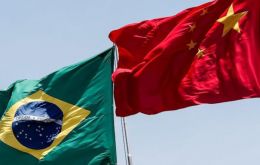
Brazil’s main trading partner, China, is the destination for over a quarter of total Brazilian exports, involving more than US$90 billion in 2022 in transactions of commodities such as soy, crude oil, and iron ore – products that dominate the bilateral agenda between the two nations.
-
Tuesday, March 28th 2023 - 11:11 UTC
Argentina becoming net importer of soybean to feed its grain processing industry
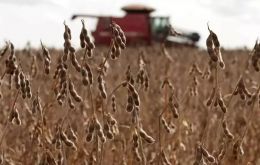
Argentina’s soybean imports are expected to more than double this season due to the devastating impacts of the historic drought on the country’s 2022/23 harvest, the country’s Rosario grains exchange said in a report.
-
Monday, March 27th 2023 - 10:17 UTC
China reopens market for Brazilian beef exports, following a mad cow case scare
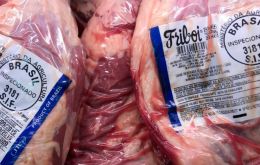
China reopened its market for beef exports from Brazil las week, Thursday (3/23). The information was passed on to the Minister of Agriculture, Carlos Fávaro, and to the Brazilian delegation in Beijing by the country’s General Administration of Customs (GACC).
-
Saturday, March 25th 2023 - 10:36 UTC
Falklands, no confirmed cases of avian influenza in wild or domestic birds

The Veterinary Department can confirm that, following a major implementation of enhanced bio-security across the Islands, there have, to date, been no confirmed cases of avian influenza (bird flu) in the Falkland Islands wild or domestic birds.
-
Thursday, March 23rd 2023 - 10:35 UTC
China's pork industry again faces an outbreak of African swine fever
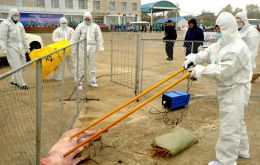
A surge in African swine fever infections in China is set to reduce hog output later this year, farm managers and analysts said this week, pushing up prices in the world’s top pork consumer as demand recovers.
-
Thursday, March 23rd 2023 - 10:30 UTC
Brazil confident China's beef market is recovering, but at lower prices

The price of beef (fresh, chilled or frozen) exported by Brazil mainly to China in the first week of February maintained the downward trend of the last eight months, but, according to analysts, the trend now is for prices to recover in the rest of the year, although to levels lower than those observed in June.
-
Wednesday, March 22nd 2023 - 10:10 UTC
First shipment of Argentine beef to Mexico takes off

The first shipment of Argentine beef took off from Ezeiza Airport Tuesday on an AeroMexico flight after more than 10 years of negotiations, the South American country's National Service for Agrifood Health and Quality (Senasa) reported. Both countries had agreed on December 2 on the sanitary certificate requirements.
-
Monday, March 20th 2023 - 15:59 UTC
Moscow extends 60 days Black Sea Grains exports; Putin insists West sanctions on Russian exports must also be lifted

The United Nations announced on Saturday that a deal allowing for the safe export of grain from Ukrainian reports had been extended. The UN did not specify the length of the renewal, while Russia and Ukraine issued conflicting statements on the matter.
-
Thursday, March 16th 2023 - 06:11 UTC
Paraguayan gov't wants no more red tape from US on beef exports
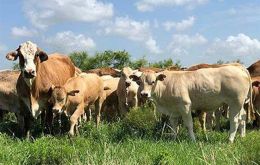
Paraguayan authorities insisted this week before the US Embassy that there were no sanitary impediments for the northern country to welcome beef shipments from the South American nation, only red tape was hindering progress in that regard.